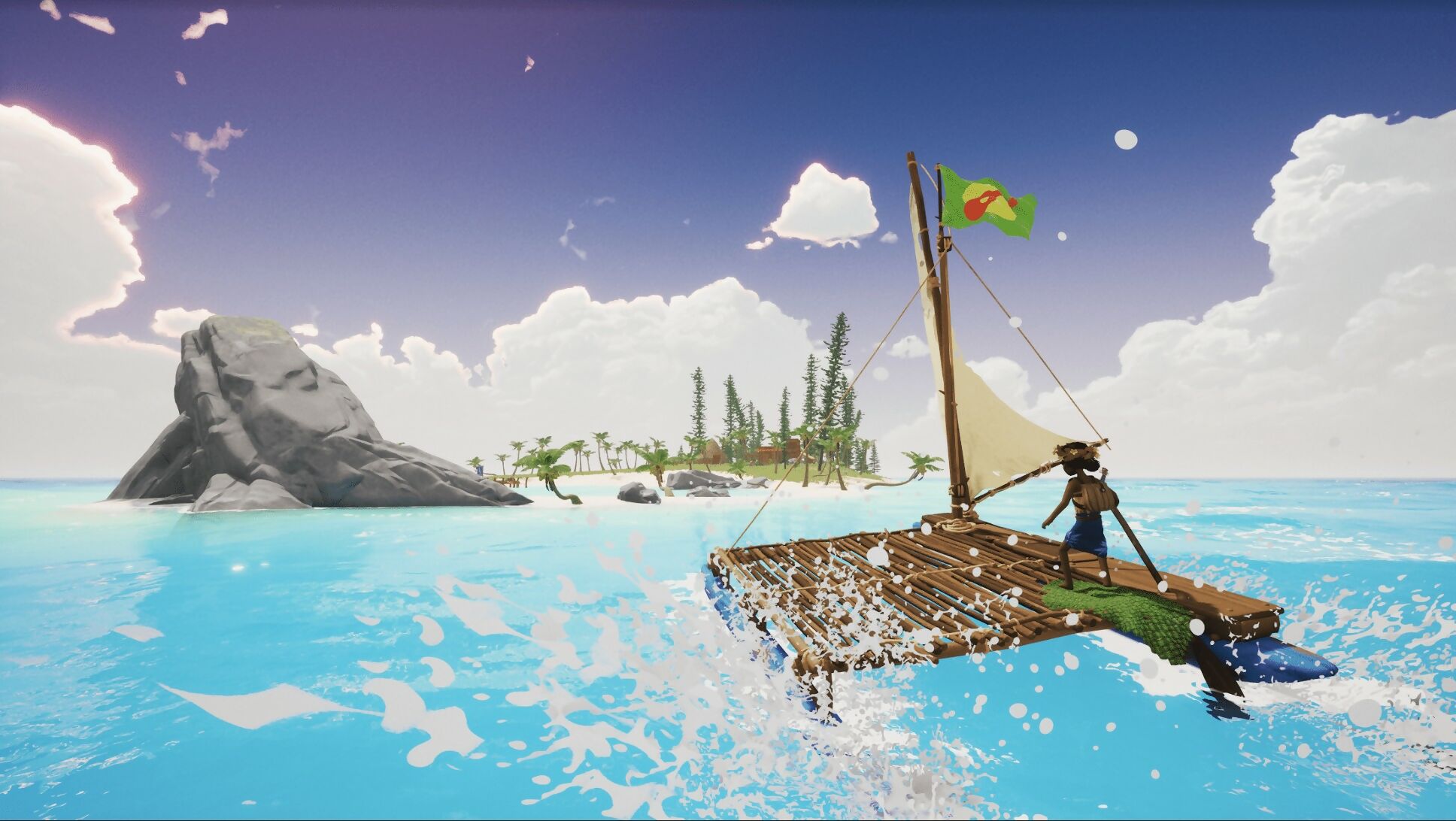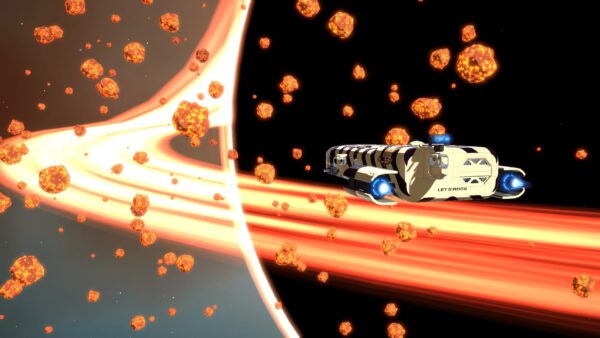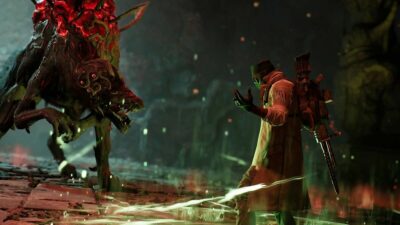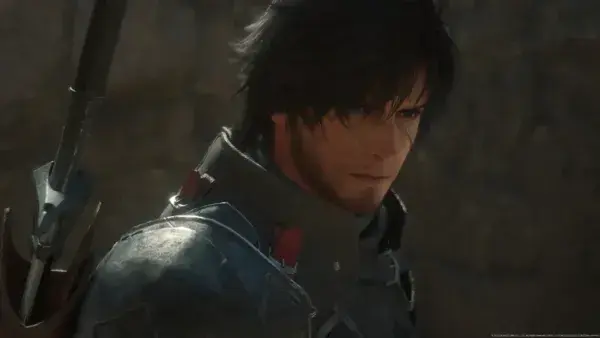
Game director Phil Crifo talks through the origins and ambitions of his studio’s tropical sandbox, Tchia…
Is it possible to be too ambitious as an indie developer? Certainly, French studio Awaceb hasn’t taken the easy route with its sophomore project, Tchia. A physics-based, open-world adventure that takes in a diverse island setting, multiple modes of traversal, combat, and lots more besides, it’s a considerable step up in scope from the outfit’s first game, the 2D platformer Fossil Echo. Indeed, the sheer wealth of ideas in Tchia are of a scale you’d expect from a major studio – and yet the team behind it amounts to only a dozen or so members. “It’s fairly small for the scope of game we’re making,” admits game director and studio co-founder Phil Crifo. “We allowed ourselves to be a bit crazy with what we wanted to do, just because everyone was so passionate about what we’re making… a lot of ideas were flowing, so we committed to a lot early on. But once we were committed, we had to see it through.”
Set on the azure shores of New Caledonia, Tchia sees its titular heroine embark on a journey to rescue her father, who’s been spirited away by a mysterious figure. Along the way, she connects with her latent, magical powers: most obviously, her ability to ‘soul jump’ into just about any object. She can inhabit the body of a gull and soar into the air; she can possess a crab and use its claws to snip open locked chests. She can even leap into inanimate items like lanterns, causing them to roll off a ledge and start a fire. It’s all part of a game that Crifo says is intended to “feel like a toy box”.

There’s a narrative to Tchia, but it’s there to be discovered and enjoyed at your own pace
Back when the project got started, Awaceb comprised just two developers: Crifo and his co-founder creative partner, Thierry Boura. Its first game was, as Crifo describes it, “a very garage thing” – a small project that “was really about just making sure we’re able to ship something.” With the ambition of encapsulating their island home and its vibrant culture in a video game, Crifo and Boura began building a simple prototype. “For our second game, we definitely put more thought into what makes us different as a studio, as a creative team,” Crifo says. “It was pretty obvious from the very early days that New Caledonia was our cultural origin, and that it was something we should tap into to make something unique… I don’t think we would have made an open-world sandbox if we didn’t have the cultural background to build that world on.”
The duo’s prototype concentrated on movement (“free-climbing, gliding, stuff like that”) and also an early iteration of the soul-jumping mechanic. With that proof of concept up and running by 2017, Awaceb began shopping it around would-be publishers – and it was around this point that Crifo first heard about Kowloon Nights, a newly formed investment fund pitched squarely at indie developers. Crifo emailed off his pitch, not expecting much in return, and was surprised when he received a positive reply – within weeks, the studio found itself in the company of such developers as Thunder Lotus Games (which made the acclaimed Spiritfarer), Sloclap (Sifu) and the eminent Fumito Ueda (Shadow of the Colossus). “That was pretty exciting for us, because sometimes, when you’re a very small studio with no notable prior games, it can be tricky,” says Crifo. “But they put their trust in the game early on – and also in us, because we’re just two people, and obviously the game couldn’t be done with just two people. So they weren’t just funding the game – they were funding us to be able to build a studio… I think that was the biggest step towards making the game possible, to be honest.”

There’s a day-night cycle in Tchia as well as weather effects. The team experimented with making rain affect the player’s ability to climb, but the idea was later dropped
That funding allowed Awaceb to grow to a core team of 13 full-time developers, and together, they’ve spent the past five years constructing their archipelago – a place where it’s possible to dive into the Pacific on the hunt for pearls, pick your way through dense forests, or explore the concrete sprawl of city. It’s not a one-to-one replica of the real New Caledonia, and certainly not the unfeasibly huge expanse of something you’d see from a triple-A studio – but then again, that wasn’t the team’s goal in the first place. “On the technical side, I think we had to be smart in terms of scale and how we lay out content,” Crifo says. “We’re such a small team, so we’re not going to make a gigantic, open-world map. It’s more condensed but with a lot of stuff to do rather than super expansive.”
And there really is a lot of stuff to do in Tchia: when you aren’t taking on the forms of animals and inanimate objects, switching outfits, sailing around on our boat or following the breeze on your glider, you can simply sit and play your ukulele. It’s this latter element that, we’d argue, speaks volumes about Awaceb’s approach to game design. Crifo describes the ukulele-playing as being akin to Guitar Hero, but there’s far more to it than that: you can play major or minor notes and chords, and you can even bend strings to alter their pitch. Rather than make a simple minigame, the studio made a full-featured instrument that can be used in a variety of ways throughout the campaign. “It’s something that goes into our ‘toy box’ philosophy,” says Crifo. “You can learn soul melodies, and if you take out your ukulele and play them, it impacts the world – attracting animals, sprouting magical plants that have unique abilities to help you with exploration and combat… there are rhythm segments that you play with characters you meet at certain points in the story.”

Unreal Engine isn’t “super-designed for open-world games,” says Crifo, but argues the platform’s tools have still helped make the game possible to make with a small team
The ukulele is also one of several aspects of the game that are closely tied to New Caledonian culture; Crifo and his team are intent on not just using the place as a pretty backdrop, but as a source of inspiration for its story and mechanics. “Music is so ingrained in New Caledonian culture that it was really important for us to have that aspect,” Crifo says. “Making a button-mashing rhythm game out of it would’ve felt a bit underwhelming. So yeah, we went a bit overboard, but I think it makes for a really fun mechanic.”
There’s also stealth and a smattering of combat in the mix – the latter coming to the fore as the adventure goes on and the tone begins to darken. But even when you’re fighting the game’s rag doll-like, long-limbed enemies, the same toy box-like sense of freedom remains. “You can’t just beat enemies up,” Crifo explains. “It’s more evasive. Being spotted is pretty dangerous, so you try to either prevent being seen or you evade enemies, because you can’t just fight them up-front. The creatures are magical and made of fabric, so the only way to get rid of them permanently is to burn them up, so you can use explosive props like an oil lamp… it’s about improvisation. What do you do? There’s a prop here – do I soul jump into it or glide away? Do I slingshot the head of the enemy to stun it for a few seconds? It’s those moment-to-moment decisions that make it exciting.”

Your glider is one mode of flight; you can also possess birds if you want a more nimble way of getting around
All these interlocking mechanics aside, Crifo says the team’s biggest challenge wasn’t just technical, but tonal: can an adventure game really capture the nuance of a place that has taken in colonialism, slavery, uprisings, and a variety of languages besides its official tongue, French? “Early on, one of the challenges was, how do we honour the culture? How do we make something that’s not derivative, just because we’re building something light and joyful, how do we take inspiration from a place that has a lot of history that wasn’t always joyful? That was one of the big questions we asked: how much do we tap into the darker, more intense part of New Caledonia, and how much do we stick to our idealised view of it? I think we struck the right balance with that.”
Initially scheduled for release this year, Tchia has now moved to early 2023 to allow extra time for polish. At this stage, it’s too early to say whether the studio’s managed to clear the high bar it set itself; what is evident, though, is the youthful energy and enthusiasm Crifo and his team have poured into their blue-skied sandbox. “It’s what I mentioned early on about us being maybe a little bit too passionate about what we’re making,” Crifo says. “But we’re just going the extra mile with everything. All of our decisions are dictated by that early core idea – of making a toy box… I’m super excited to get it into people’s hands. I know it’s going to resonate with New Caledonian people, but I’m confident it’ll resonate with people all around the world, too. That’s the challenge we set out to achieve: to make it universal.”
Genre Sandbox adventure | Format PC, PS4, PS5 | Developer Awaceb | Publisher Kepler Interactive Release | Early 2023 | Social @awaceb





